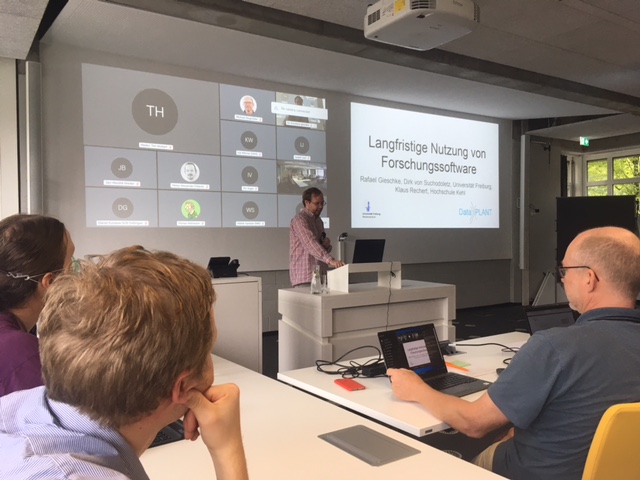News
Talk on CARE principles
- Published on Wednesday, 19 October 2022
Research data management usually focusses on how to exchange and reuse data. This aspect is formulated in the FAIR principles. However, ethical aspects of research data management are not focussed and there is a gap between what can be done with data and what should be done with data. This gap is addressed by the CARE principles. Although these principles were formulated by and for indigenous data, some ideas can be adapted to research dealing with other data then indigenous data. Holger Gauza held a talk about the CARE principles in cooperation with forschungsdaten.info live. As data are gaining more importance and technology advances, misuse of research data poses a serious danger.
(HG)
Ensuring the reproducibility of Research results by preserving access to research software and by providing a technical context
- Published on Friday, 16 September 2022
The BioDATEN SDC presented at the DINI Workshop "Forschungssoftware managen" held on the 15th/16th September at Stuttgart University.
Research data can be meaningfully interpreted and reused only in the and reusable only in the respective context. Software is a central component of this context. Often software is implicitly seen as part of FAIR data management. In communication, especially with researchers, but also with other stakeholders, it helps to see research software as a challenge in its own right and to recognize its access to research results in the long term.
Based on the rules of good scientific practice and in accordance with the FAIR principles, strategic considerations on the conditions of a long-term usability of research software were discussed. For this purpose, current developments in the legal implications, e.g. of licenses and the legal-organizational were presented. Many rules with regard to closed-code software are missing in the project setup and planning. Solutions such as mandated escrow, legal deposit, which go beyond individual specialist repositories. It would be beneficial to implement such services as well as modules for functional long-term access on an overarching level in a federated service infrastructure.

(DvS)
RDM for humanities
- Published on Thursday, 14 July 2022
Research data management is important for every research discipline and the humanities are no exception. To address this community, the IKM at the Tübingen University organised the 2nd "Tübinger FDM Tage". This year, Holger Gauza (BioDATEN) gave an overview of research data management in general, followed by talks by Prof. Dr. Torsten Schrade (NFDI4Culture), Prof. Dr. Andreas Witt (Text+), Jan Hess and Prof. Dr. Roland S. Kamzelak (SDC4Lit) and Dr. Michael Derntl (Digital Humanities Center Tübingen University).
